
Philip Tyler Keaggy is an American acoustic and electric guitarist and vocalist who has released more than 55 albums and contributed to many more recordings in both the contemporary Christian music and mainstream markets. He is a seven-time recipient of the GMA Dove Award for Instrumental Album of the Year, and was twice nominated for a Grammy Award for Best Rock Gospel Album. He has frequently been listed as one of the world's top-two "finger-style" and "finger-picking" guitarists by Guitar Player Magazine readers' polls, and due to his complex and virtuosic playing, he is widely regarded as one of the greatest guitarists of all time.

Larry David Norman was an American musician, singer, songwriter, record label owner, and record producer. He is considered to be one of the pioneers of Christian rock music and released more than 100 albums.
The Beatles' bootleg recordings are recordings of performances by the Beatles that have attained some level of public circulation without being available as a legal release. The term most often refers to audio recordings, but also includes video performances. Starting with vinyl releases in the 1970s, through CD issues in the late 1980s, and continuing with digital downloads starting in the mid-1990s, the Beatles have been, and continue to be, among the most bootlegged artists.

Odds & Sods is an album of studio outtakes by British rock band the Who. It was released by Track Records in the UK on September 28, 1974, and by Track/MCA in the US on October 12, 1974. Ten of the recordings on the original eleven-song album were previously unreleased. The album reached No. 10 on the UK charts and No. 15 in the US.

"Let There Be Love" is a song by English rock band Oasis from their sixth studio album, Don't Believe the Truth (2005). Written by Noel Gallagher, it is the third and the last Oasis song to feature Liam and Noel on lead vocals, the first being "Acquiesce" and the second being "Put Yer Money Where Yer Mouth Is". It was released on 28 November 2005 as the third and final single from the album in the United Kingdom and as the second single in the United States.

Shot of Love is the twenty-first studio album by American singer-songwriter Bob Dylan, released on August 12, 1981, by Columbia Records. It is considered to be Dylan's last of a trilogy of Christian albums. Arrangements are rooted more in rock, and less in gospel than Dylan's two previous albums.

Beat the Boots! is a box set by Frank Zappa. Released in 1991 through Rhino Entertainment, the set contains legal reissues of eight bootleg recordings made between 1967 and 1982 and originally distributed illegally prior to this official release. A second box set of bootleg recordings, Beat the Boots! II, was released through Rhino in June 1992.

Jesus Christ Superstar is a 1970 album musical by Andrew Lloyd Webber and Tim Rice, on which the 1971 rock opera was based. Initially unable to get backing for a stage production, the composers released it as an album, the success of which led to stage productions. The album musical is a musical dramatisation of the last week of the life of Jesus Christ, beginning with his entry into Jerusalem and ending with the Crucifixion. It was originally banned by the BBC on grounds of being "sacrilegious". By 1983, the album had sold over seven million copies worldwide.
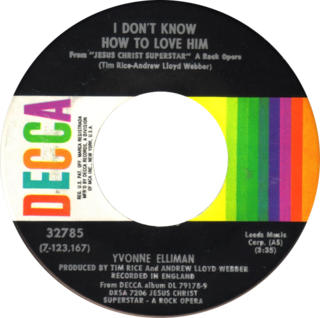
"I Don't Know How to Love Him" is a song from the 1970 album and 1971 rock opera Jesus Christ Superstar written by Andrew Lloyd Webber (music) and Tim Rice (lyrics), a torch ballad sung by the character of Mary Magdalene. In the opera she is presented as bearing an unrequited love for the title character. The song has been much recorded, with "I Don't Know How to Love Him" being one of the rare songs – after the 1950s, when multi-version chartings were common – to have had two concurrent recordings reach the Top 40 of the Billboard Hot 100, specifically those by Helen Reddy and Yvonne Elliman.

Grow Up is the debut album by the American punk rock band the Queers. Recorded in multiple sessions between 1986 and 1988, with various band members and session musicians backing singer and guitarist Joe King, it was originally released as an LP record in 1990 by British label Shakin' Street Records. However, the label went out of business after only 1,000 copies were pressed. The Queers had more copies pressed themselves, continuing to list Shakin' Street as the record label, but when they failed to pay their bill the pressing plant destroyed all but approximately 160 copies, which the band released with a photocopied album cover.

Don't Back Down is the sixth studio album by the American punk rock band the Queers, released in August 1996 by Lookout! Records. The band and Lookout! president Larry Livermore, who served as executive producer, sought to balance the sounds of the Ramones and the Beach Boys, and enlisted the help of former Queers guitarist JJ Rassler and Cub singer Lisa Marr. The album's title track is a cover version of the Beach Boys song of the same name; it also features covers of the Hondells' "Little Sidewalk Surfer Girl" and Hawaiian punk band the Catalogs' "Another Girl". The album produced the band's first music videos, for "Punk Rock Girls" and "Don't Back Down".
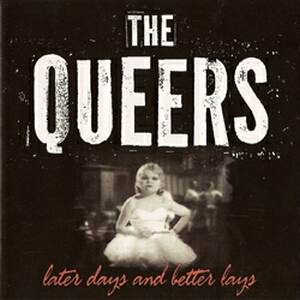
Later Days and Better Lays is a compilation album by the American punk rock band the Queers, released in March 1999 by Lookout! Records. It combines a 14-song demo tape from 1991 with some demos recorded in the lead-up to their 1996 album Don't Back Down, as well as some outtakes from that album's recording sessions. The compilation fulfilled the band's contractual obligations to Lookout!, following seven years and four studio albums on the label. They moved on to Hopeless Records, but would return to Lookout! for the Today EP (2001) and album Pleasant Screams (2002) before parting ways with the label again.

In Another Land is a studio album recorded by Larry Norman and released in 1976. It is the third album in Norman's "trilogy", which began with Only Visiting This Planet and continued with So Long Ago the Garden. The album contains some of Norman's most well-known work.

Something New Under The Son is an album recorded by Larry Norman in 1977 and released in 1981.
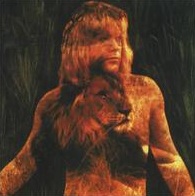
So Long Ago the Garden is an album recorded by Larry Norman, released in 1973. It is the second album in what came to be known as his "trilogy," which began with the album Only Visiting This Planet and concluded with In Another Land. So Long Ago the Garden was controversial because Norman's previously blatant Christian beliefs were more veiled on this album. In the song "Shot Down", on the album In Another Land, Norman responded to accusations by fellow Christians that he had abandoned his faith in search of fame and fortune.
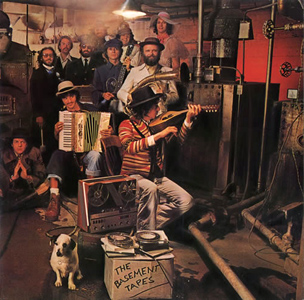
The Basement Tapes is the sixteenth album by the American singer-songwriter Bob Dylan and his second with the Band. It was released on June 26, 1975, by Columbia Records. Two-thirds of the album's 24 tracks feature Dylan on lead vocals backed by the Band, and were recorded in 1967, eight years before the album's release, in the lapse between the release of Blonde on Blonde and the subsequent recording and release of John Wesley Harding, during sessions that began at Dylan's house in Woodstock, New York, then moved to the basement of Big Pink. While most of these had appeared on bootleg albums, The Basement Tapes marked their first official release. The remaining eight songs, all previously unavailable, feature the Band without Dylan and were recorded between 1967 and 1975.
The recordings made by the Beatles, a rock group from Liverpool, England, from their inception as the Quarrymen in 1957 to their break-up in 1970 and the reunion of their surviving members in the mid-1990s, have huge cultural and historical value. The studio session tapes are kept at Abbey Road Studios, formerly known as "EMI Recording Studios," where the Beatles recorded most of their music. While most have never been officially released, their outtakes and demos are seen by fans as collectables, and some of the recordings have appeared on countless bootlegs. The only outtakes and demos to be officially released were on The Beatles Anthology series and its tie-in singles and anniversary editions of their studio albums. Bits of some previously unreleased studio recordings were used in The Beatles: Rock Band video game as ambient noise and to give songs studio-sounding beginnings and endings. In 2013, Apple Records released the album The Beatles Bootleg Recordings 1963, which includes previously unreleased outtakes and demos from 1963, to stop the recordings from falling into the public domain.
Scott Wesley Brown is an American CCM singer and songwriter. He has recorded 25 albums and toured in over 50 countries.
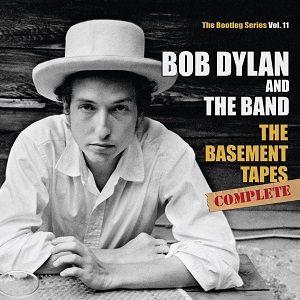
The Bootleg Series Vol. 11: The Basement Tapes Complete is a compilation album of unreleased home recordings made in 1967 by Bob Dylan and the group of musicians that would become the Band, released on November 3, 2014 on Legacy Records. It is the ninth installment of the Bob Dylan Bootleg Series, available as a six-disc complete set, and as a separate set of highlights – in a two-disc format common to the rest of the series – entitled The Basement Tapes Raw.
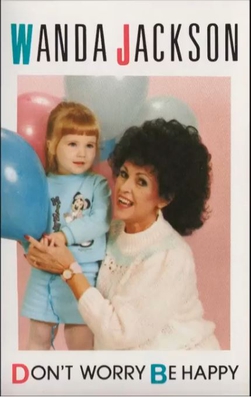
Don't Worry Be Happy is a studio album by American recording artist Wanda Jackson. It was released in 1989 via Amethyst Records and contained 12 tracks. It was Jackson's thirty fifth studio recording released in her career and the third issued on the Amethyst label. Don't Worry Be Happy was a collection of gospel songs, including the title track, which was first recorded as a pop song by Bobby McFerrin.

















